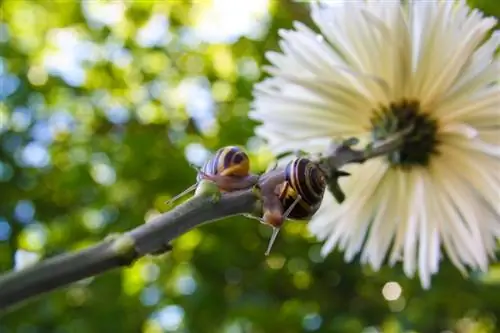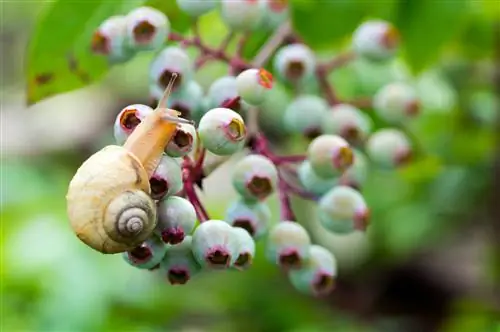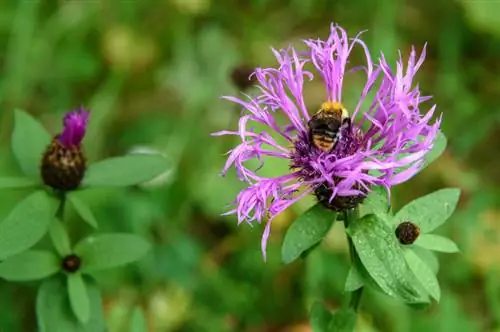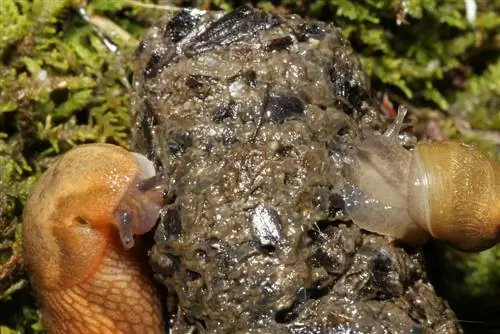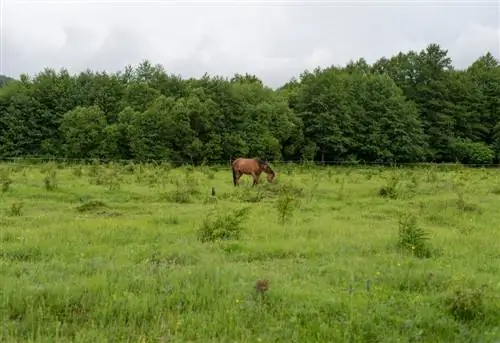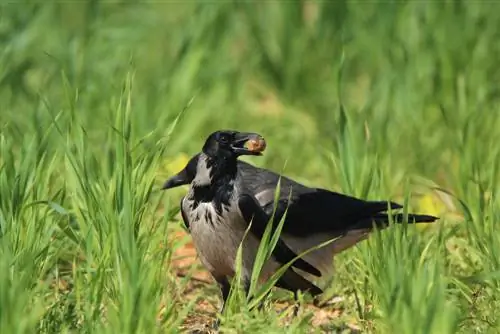- Author admin leonars@hobbygardeners.com.
- Public 2023-12-16 16:46.
- Last modified 2025-01-23 11:20.
Snails are a tiresome topic for every gardener, as the animals eat every bed empty in no time and destroy entire gardens. There are no really effective remedies against this pest, the only thing that helps is to make the garden as unappetizing as possible for snails and to collect the animals regularly.
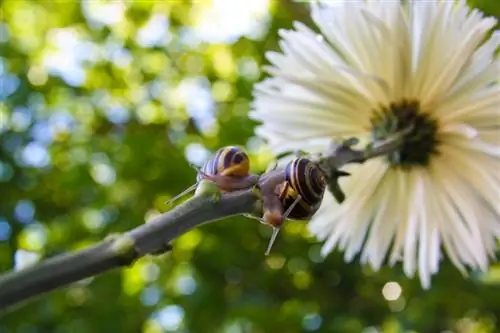
Do snails eat chrysanthemums?
Whether snails eat chrysanthemums depends on the species. Some types of chrysanthemums, especially Tanacetum species, contain a neurotoxin that deters snails. However, other species can be eaten by snails. To prevent snails in the garden, targeted defensive measures are recommended.
Do snails like chrysanthemums or not?
Snails are extremely voracious, but they don't eat everything. Some plants are even extremely unpopular and are avoided, i.e. H. not eaten. Opinions differ as to whether chrysanthemums are appetizing to snails or not. Some gardeners claim that chrysanthemums are particularly popular, while others report that these plants in particular are spared. These different experiences can be explained quite simply: There are chrysanthemum species that are at risk from being eaten by snails and species that are avoided by the slimy animals.
Protect bed plants from snail damage
Poisonous chrysanthemums are particularly unpopular with snails; especially those of the Tanacetum species are avoided by the slimy creatures. These contain a neurotoxin that is used, among other things, in insecticides and also works on snails. In addition to planting plants that snails don't like, you can also make your garden snail-proof in other ways. These include measures such as:
- Sprinkle sand / bark mulch / sharp stones around endangered plants
- Set up snail rings and/or snail fences
- Spread slug pellets
- Setting up beer traps
- Destroy clutches (pour boiling water over them)
- collect snails regularly
Collecting works best if you do it every morning.
Least Endangered Plants
Basically, some plants taste much better to the voracious snails than others. However, almost no plant is really snail-proof, because before the animals starve to death they prefer to eat unwanted food. Nevertheless, plants that are less likely to be endangered by snails can be used as a great barrier between the wolverines and their most popular food plants. These snail-repellent plants include the following plants:
- Garlic, onions and allium-like plants (including ornamental onions!)
- Wild garlic
- Rosemary and thyme
- Lavender
- Holy Herb
- Storksbill
- Sedum
- Ferns
The list is of course not complete.
Tips & Tricks
When you collect snails, only remove the slugs if possible, because these are the only voracious garden predators. Ordinary garden snails (the ones with houses) do little damage and the large garden snails even do you a big favor: they like to eat away the slugs' clutches.

